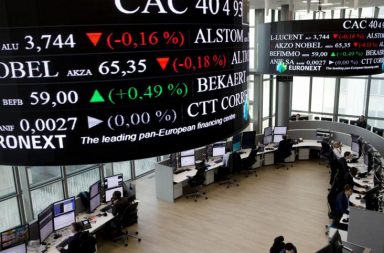Last month, U.S. consumer spending edged higher than anticipated and annual inflation grew at its slowest pace in the more than 1-1/2 years, cutting expectations of an interest rate hike in December. Inflation remains low even as the labor market is near full employment, a problem for the Federal Reserve. Additional data on Thursday displayed a small hike in new applications for unemployment benefits last week among a firming job market.
“The consumer continues to do the heavy lifting when it comes to economic growth,” stated Chris Rupkey, chief economist at MUFG in New York. “Inflation is in the slow lane for now and this is likely to make Fed officials cautious on the need to raise rates a third time this year.”
The Commerce Department reported consumer spending, which amounts for more than two-thirds of U.S. economic activity, advanced 0.3 percent last month following a 0.2 percent increase in June. Economists had forecast consumer spending increasing 0.4 percent last month.
The personal consumption expenditures (PCE) price index not including food and energy increased 0.1 percent in July. The so-called core PCE price index, which is the Fed’s ideal inflation measure, has now gained by the same margin for three consecutive months.
The 12-month gain in the core PCE price index dropped to 1.4 percent, the smallest increase since December 2015. The index advanced 1.5 percent in the 12 months through June. The annual rate has declined by half a percentage point since February and the PCE price index has undershot the U.S. central bank’s 2 percent target for the last five years.
The mix of gradual consumer spending and low inflation casts concerns on whether the Fed will hike interest rates at its December policy meeting, as most economists predict.

THE MORNING REPORT
Start your workday the right way with the news that matters most.
Your information is 100% secure with us and will never be shared Disclaimer & Privacy Policy
The Fed has increased borrowing costs twice this year. It is, however, anticipated to announce a plan to start cutting its $4.2 trillion portfolio of Treasury bonds and mortgage-backed securities next month.
“We expect core inflation to get worse on a year-over-year basis before it gets better, making it an easy decision for the Fed to skip raising rates at its September meeting and focus on the balance sheet only,” stated Ellen Zentner, chief U.S. economist at Morgan Stanley.
 D. Marie
D. Marie 



